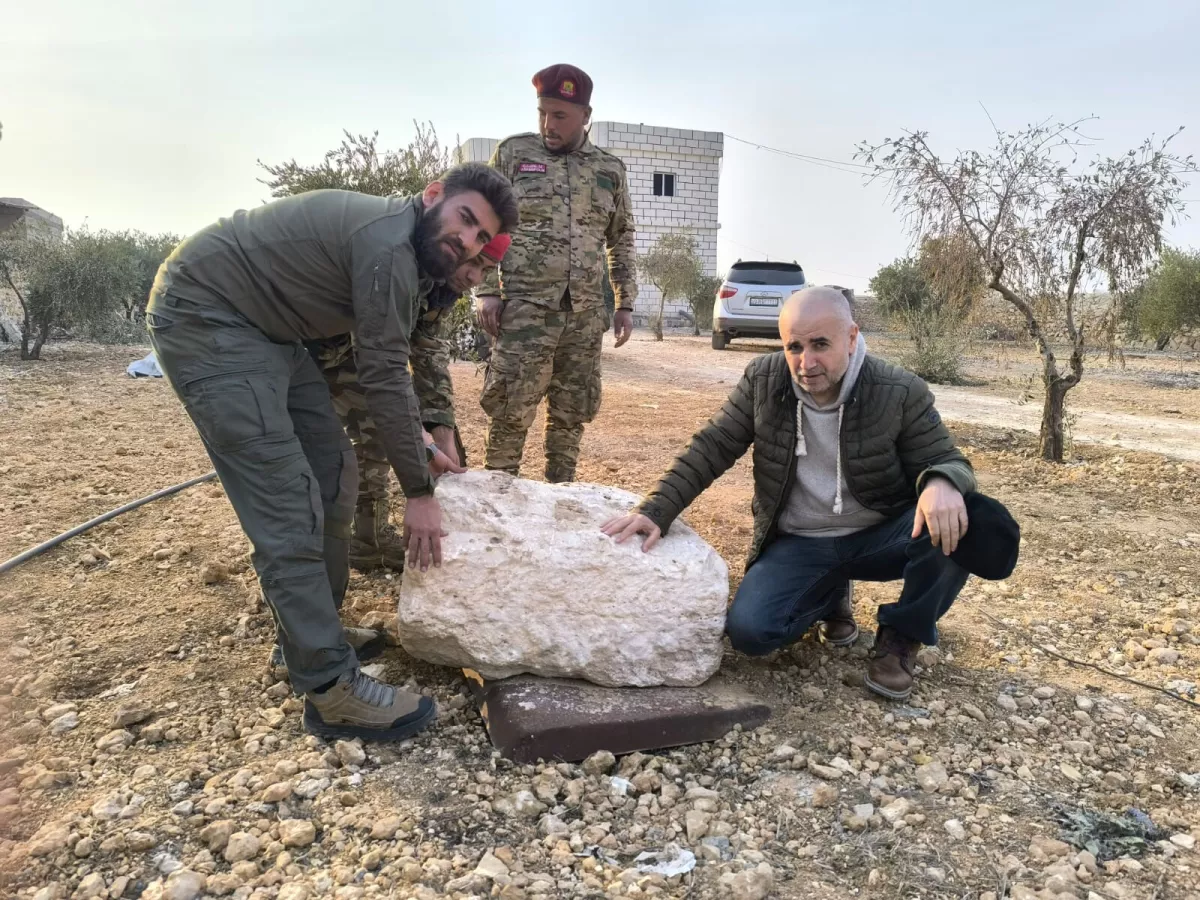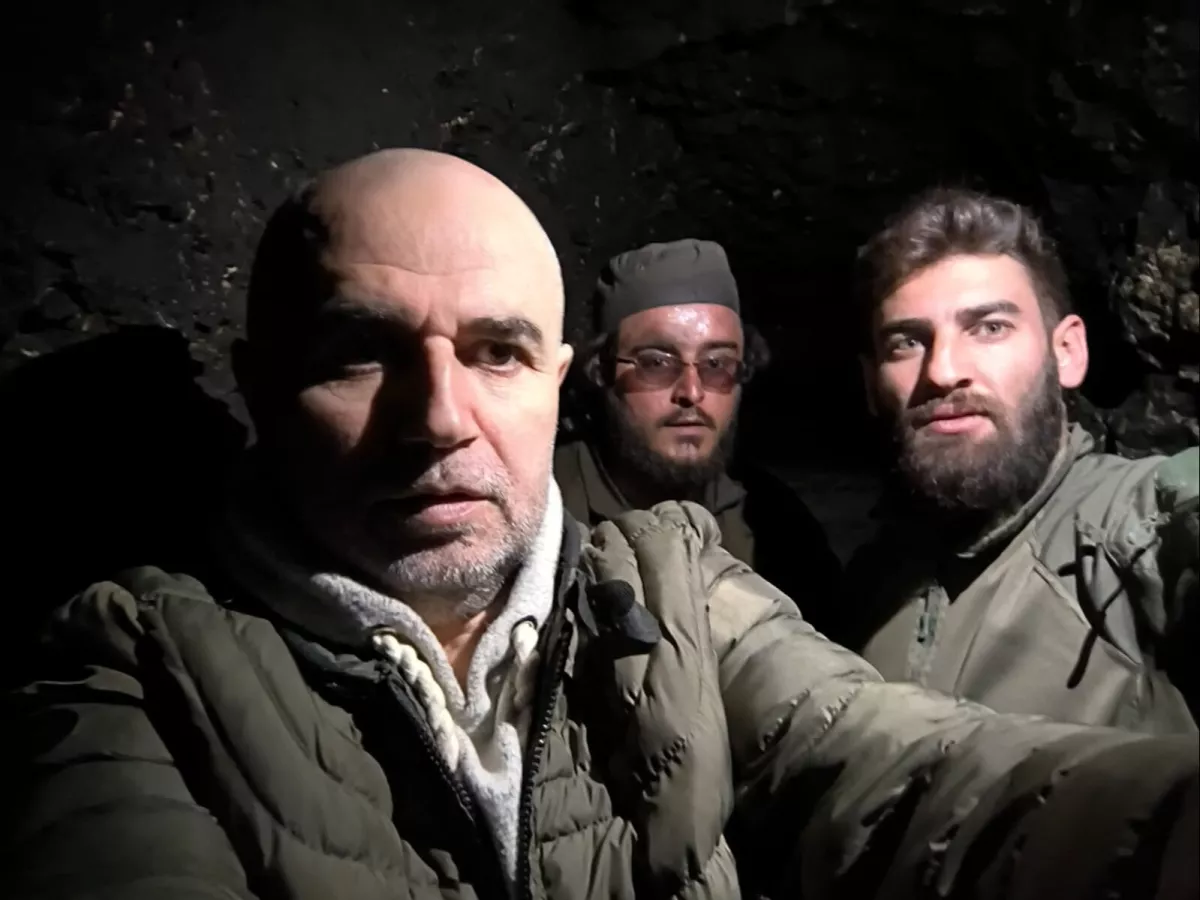Trapped underground: Over 300 PKK/YPG terrorists cornered in Manbij's tunnel network PHOTO/VIDEO
The Syrian city of Manbij, recently liberated from the grip of the PKK/YPG terrorist organization, continues to reveal the extensive underground network used by militants.
However, hundreds of terrorists remain trapped in these tunnels, creating new challenges for security forces working to clear the area.
Firas Sheikh Mohammed, head of the Manbij Police Department, shed light on the situation in an interview with the "Türkiye" daily, per Caliber.Az.
“Currently, more than 300 PKK/YPG terrorists are effectively imprisoned in the tunnels. They are confused, disorganized, and struggling to find a way out,” he said.
🚨Suriye Milli Ordusu, Münbiç kırsalındaki tüm tünelleri kontrol altına aldı. Tünellerde trafik levhaları gibi yönlendirici işaretler mevcut.
— Savaş Medya (@savasmedya) January 18, 2025
Kilometrelerce uzunluktaki tünellerde bir insan rahatça ilerleyebiliyor. Tünel kolları, ana bir tünelde birleşiyor. pic.twitter.com/pSbaPchiyn
Mohammed revealed that more than 70 terrorists have been captured alive in areas like Abu Galgal, Karakozak, Set Teshreen, Manbij, and Khalsa. “Almost all of them were under the influence of drugs, and some are completely lost in the labyrinth of tunnels,” he added.
The vast tunnel network, built to facilitate the terrorist organization’s operations, extends far beneath the surface, with underground roads capable of accommodating motorbikes and even pick-up trucks. “We’ve only managed to explore about 20% of the tunnels so far,” Mohammed noted. “This enormous structure includes weapons depots, a hospital, assembly and logistics centres, and even tracks for vehicles and motorbikes. Rest assured, we will clean and close it all.”

A tactical stronghold underground
The police chief explained that the tunnels, constructed as a safeguard against UAV attacks, were a product of international support. “The tunnels started being built in 2016, with coalition forces effectively aiding the effort,” he said. “Western countries provided not only financial and material assistance, such as cement, cabling, and hospital equipment but also highly skilled personnel. A total of $200 million was spent on the project.”
This underground network reportedly facilitated 60% of all movement in areas controlled by the PKK. Ammunition, reinforcements, and even medical evacuations were carried out via these tunnels, which also connected towns and centres, including Kamishli. “The terrorists relied heavily on this underground system, but coordination between their forces collapsed rapidly,” Mohammed explained.

Struggle to flush out terrorists
Security forces have employed creative measures to neutralize the underground threat. “In some places, we pour water into the tunnels; in others, we burn tyres. We’re also blocking exits to cut off escape routes,” said Mohammed. “At night, we can hear the sounds of compressors coming from underground as the trapped terrorists try to create new exits.”
Despite the efforts of the terrorists, their situation appears increasingly desperate. “Qandil personnel were the first to abandon the tunnels,” Mohammed noted, referring to high-ranking members of the organization. “The rest are now trying to hold on, but they’re running out of options.”
In his conclusion, Mohammed expressed determination to rid Manbij of the remnants of terror. “We will clean up every inch of this underground network and make sure the city remains secure,” he vowed.
By Tamilla Hasanova








